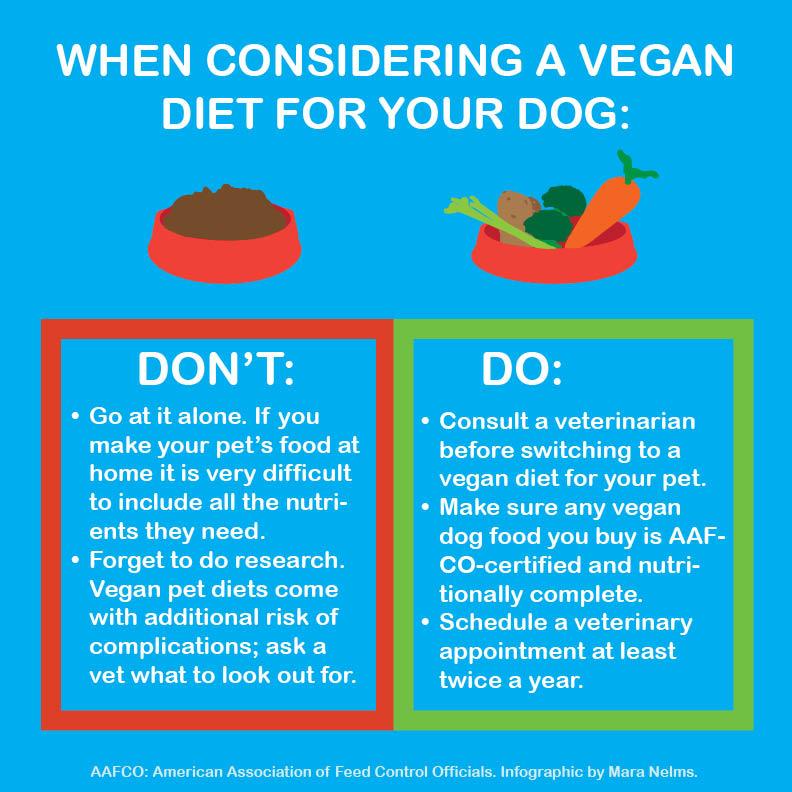As more pet owners embrace plant-based lifestyles, the question of whether a vegan diet can meet the nutritional needs of their canine companions has become increasingly relevant. While dogs are known for their omnivorous capabilities, ensuring they receive all necessary nutrients on a vegan diet can be a complex endeavor. This article aims to explore the potential health implications of feeding dogs a vegan diet, providing guidance on how to maintain their well-being while aligning with ethical and environmental values. With a warm and open approach, we will delve into the nutritional requirements of dogs, examine scientific insights, and offer practical advice for those considering this dietary path for their furry friends.
Understanding Nutritional Needs for Your Canine Companion
When considering a vegan diet for your furry friend, it’s crucial to weigh the potential health implications. While dogs are omnivores and can theoretically survive on a plant-based diet, ensuring they receive all the necessary nutrients is challenging. Essential nutrients such as protein, vitamins, and minerals are often more readily available in animal products. To successfully implement a vegan diet, you’ll need to carefully plan meals and potentially incorporate supplements to meet your dog’s nutritional requirements.
- Protein: While plant-based proteins exist, they may lack certain amino acids essential for dogs.
- Vitamin B12: Naturally found in animal products, this vitamin is crucial for nerve and blood cell health.
- Taurine and L-Carnitine: Deficiencies can lead to heart issues, and these nutrients are less prevalent in plant sources.
Consulting with a veterinarian before transitioning to a vegan diet is always recommended. They can provide guidance and help monitor your dog’s health to prevent any potential issues from arising.
Potential Health Risks of a Vegan Diet for Dogs
While a vegan diet for dogs might align with ethical considerations or personal beliefs, it’s crucial to recognize the potential health challenges that may arise. Dogs are omnivores, meaning their natural diet includes both plant and animal sources. A plant-based diet may lack essential nutrients such as taurine, vitamin B12, and certain amino acids, which are predominantly found in animal products. Nutritional deficiencies can lead to severe health issues, including heart problems, weakened immune systems, and developmental disorders in puppies.
- Protein Quality: Plant-based proteins often lack the complete amino acid profiles found in meat, which are essential for maintaining muscle mass and overall health.
- Digestibility: Some dogs may have difficulty digesting plant-based foods, leading to gastrointestinal issues.
- Allergens: Ingredients like soy or wheat, commonly used in vegan dog foods, can be potential allergens.
For those considering this dietary switch, consulting with a veterinarian or a pet nutritionist is advisable to ensure the diet meets all of a dog’s nutritional needs. Balancing ethics with health is possible but requires careful planning and monitoring.
Balancing Plant-Based Ingredients for Optimal Canine Health
Crafting a nutritionally balanced vegan diet for your dog requires thoughtful selection of plant-based ingredients. Ensuring that your canine companion receives all essential nutrients can be achieved through a combination of diverse food sources. Proteins are a crucial component, and can be sourced from legumes such as lentils and chickpeas, as well as tofu and quinoa. Essential amino acids, which are the building blocks of proteins, must be carefully considered, as some plant-based diets may fall short without proper supplementation.
In addition to proteins, healthy fats play a vital role in maintaining optimal canine health. Incorporating sources like flaxseed oil and chia seeds can provide necessary omega-3 fatty acids. Vitamins and minerals are also pivotal; ensure your dog’s diet includes a variety of vegetables like sweet potatoes, carrots, and spinach to supply these nutrients. Consider using fortified foods or supplements to cover any potential gaps. Always consult with a veterinarian to tailor a diet that meets your dog’s specific health needs.
Expert Tips for Safely Implementing a Vegan Diet for Dogs
Transitioning your dog to a vegan diet can be a rewarding journey if done with care and consideration. Here are some expert tips to ensure your furry friend stays healthy and happy:
- Consult a Veterinarian: Before making any dietary changes, it’s crucial to consult with a vet who understands canine nutrition. They can help assess your dog’s specific needs and suggest suitable vegan options.
- Focus on Balanced Nutrition: Dogs require a balanced diet rich in proteins, vitamins, and minerals. Ensure the vegan diet includes high-quality sources of plant-based proteins like lentils, quinoa, and chickpeas, along with essential supplements like taurine and vitamin B12.
- Monitor Health Regularly: Keep an eye on your dog’s weight, energy levels, and coat condition. Regular check-ups with your vet can help identify any deficiencies early on.
- Introduce Gradually: To avoid digestive issues, gradually mix the new vegan food with their current diet over a period of weeks.
- Choose Quality Products: Opt for commercially available vegan dog foods that meet the Association of American Feed Control Officials (AAFCO) standards for a complete and balanced diet.
By following these guidelines, you can help ensure your dog thrives on a vegan diet without compromising their health.

